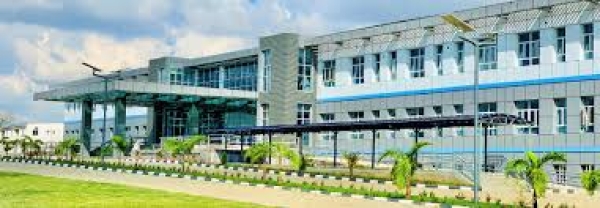Veteran Journalist and Presenter, Reuben Abati said on Tuesday that leadership in Nigeria must evolve to address the complex challenges of the 21st century.
Speaking at Baze University’s Founders Day celebration in Abuja, Mr Abati noted that Nigeria’s governance challenges have changed with digital transformation and so must governance.
Mr Abati, the keynote speaker at the event, spoke on the topic: “Leadership in a Disruptive Era: Ethics, Accountability, and the Future of Governance in Nigeria”.
He noted that the digital transformation despite its pros has also introduced challenges such as misinformation, cyber-attacks and data breaches.
He explained that governance must also evolve with the transformations in the digital era.
“In a disruptive era, leadership transcends traditional authority and requires a proactive, visionary, and ethical approach,” he said.
“Navigating governance in a disruptive era demands leaders who are ethical, accountable, and forward-thinking.
“Given Nigeria’s history of political instability, economic volatility, and social unrest, adaptive leadership is essential for ensuring resilience in governance.”
He said leadership today requires leaders who can address political instability, economic fluctuations, security threats, and technological disruptions through ethical decision-making and strategic governance.
Mr Abati noted that a successful government must build public trust which he said can be done through accountability and ensuring sustainable national development.
“The future of governance depends on the ability of leaders to rise above personal interest and prioritise collective good,” he said.
Institutional reforms
Mr Abati explained that ethical lapses in governance like corruption, nepotism and abuse of power are undermining national development.
He said institutional reforms are essential to build strong institutions for sustainable governance.
He listed the reforms to include the strengthening of independence for anti-graft agencies such as the Economic and Financial Crimes Commission (EFCC) and the Independent Corrupt Practices and other Related Offences Commission.
“Weak institutions have historically hindered Nigeria’s development, allowing corruption and inefficiency to thrive,” he said.
He also said policy makers must embrace evidence-based decision-making and continuity of policies to ensure developmental programmes are not abandoned due to political transitions.
“Policy frameworks should be aligned with long-term national development goals, while legislative processes must incorporate public participation to ensure that governance reflects the needs of citizens,” he said.
Founder’s Day Significance
Earlier in her welcome address, the university’s Vice-Chancellor, Jamila Shu’ara, a professor, said the event was to celebrate the vision of the founder of the institution, Yusuf Baba-Ahmed.
Ms Shu’ara said “Founder’s Day is a time to reflect on our journey, which is firmly rooted in a commitment to academic excellence, innovation, and community service.”
She noted that the institution commenced operations in March 2011, with 17 students in three faculties —Business Studies, Computing and Information Technology and Law.
Today, she said the institution has nine faculties, 102 academic programmes approved by the National Universities Commission (NUC), over 6,000 students and 911 members of staff.
The faculties are Management and Social Sciences, Law, Engineering, Environmental Sciences, Computing and Information Technology, Allied and Health Sciences, Basic Medical Sciences, Basic Clinical Sciences, and Clinical Sciences.
Ms Shu’ara added that the university has produced 3,300 undergraduate students and 668 post graduate students.
“As we celebrate our robust growth, we are grateful to God, and we pay tribute to our Founder’s unwavering belief in the power of education to change lives and communities,” she said.
Speaking, the Founder and Chancellor of the university, Yusuf Baba-Ahmed, emphasised the institution’s founding principles.
He said the university, which he founded 14 years ago, is based on the vision that “education is the most powerful tool for national transformation.”
“Today, we celebrate this institution’s remarkable journey, a journey marked by relentless dedication to knowledge, cutting-edge research, and character-driven leadership,” he said.
He said the university has consistently demonstrated a commitment to shaping minds, nurturing talents, and producing graduates ready to impact society.
[premiumtimesng]


